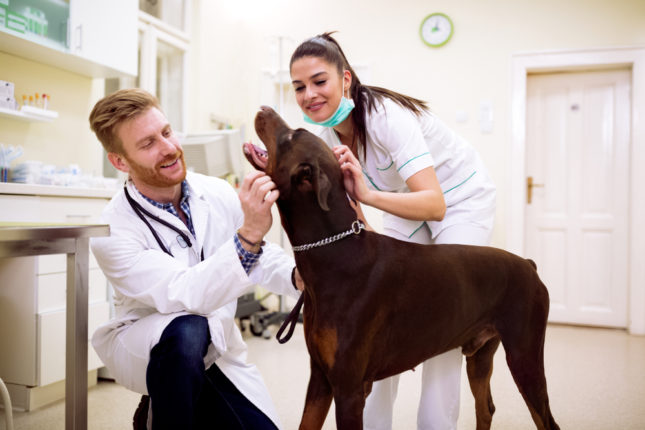
Blood Work: Why Diagnostic Tests Aren’t Just For Sick Pets
Most pet owners think of diagnostic testing, like blood work, as something reserved for use when pets are sick. This, however, isn’t exactly accurate. While blood work can help diagnose a sick pet, complete blood panels are also useful for screening healthy pets, pets who take certain medications, and pets who are having surgery.


Why We Might Recommend Running a Blood Panel on Your Healthy Pet
It’s the instinct of both young and old pets alike to hide or mask any signs and symptoms of illness. As a result, it can be difficult to spot signs of advanced disease in pets. Detecting mild signs and symptoms of early disease (before the illness has progressed to a more serious stage) can be almost impossible.
Running regular blood panels on otherwise healthy pets can help us detect signs of illness before they’ve had a chance to become noticeable or, if we’re lucky, before the medical problem has even had a chance to affect your pet. With early detection and diagnosis, Dr. Lewis can often begin treatment immediately, arrest the progression of the disease, and prevent pets from becoming seriously ill in the future.
We also do blood work when an animal is on an NSAID or Apoquel. It is essential to monitor liver and kidney function when pets are on these medications, so we can avoid any medication-related problems down the line. Regular blood work is extremely important in this situation.
We also highly recommend blood panels on pre-operative patients, and it is sometimes mandatory. Pre-surgical bloodwork, or pre-anesthetic blood panels, can save a pet’s life. If there is an underlying health issue and anesthetic is administered, complications can arise, so our veterinarian will never put a pet under anesthesia if their health could be compromised in any way.
What Do Standard Blood Panels Test?
A standard blood panel typically includes the following diagnostic tests:
Complete Blood Cell Count (CBC)
The CBC measures the number of white and red blood cells, hemoglobin, hematocrit, and platelets in your pet’s bloodstream. This is useful for screening for signs of infection, anemia, and chronic illness.
Blood Chemistry Profile
This test measures organ function, electrolyte levels, and blood sugar levels. Abnormalities might indicate disease or dysfunction.
Thyroid Hormone Testing
This test measures the level of various thyroid hormones in your pet’s blood. It screens for endocrine disorders like hypothyroidism and hyperthyroidism.
Heartworm Screening
Dogs in our region are at risk of contracting heartworms. Regular screenings ensure pets are heartworm-free and able to safely receive preventative medication. We also screen for tick-borne diseases when we do our heartworm tests. We test for Lyme’s disease and Ehrlichiosis as ticks are relevant in our area.
When Are Blood Tests Useful for Healthy Pets?
Depending on the pet’s condition or genetic predisposition to certain diseases, we might recommend regular blood panels to screen for diseases annually. For older cats and dogs, it’s considered a best practice to run a blood panel at each wellness appointment every six to twelve months.


Schedule Your Pet’s Next Wellness Exam in Goldsboro
To ensure all their vaccinations and health records are kept current, healthy adult cats and dogs should visit the veterinarian for one wellness appointment annually. Puppies, kittens, and senior pets require a more frequent checkup schedule. If your pet is due for a veterinary appointment, we welcome you to contact Eastwaye Veterinary Clinic today.



